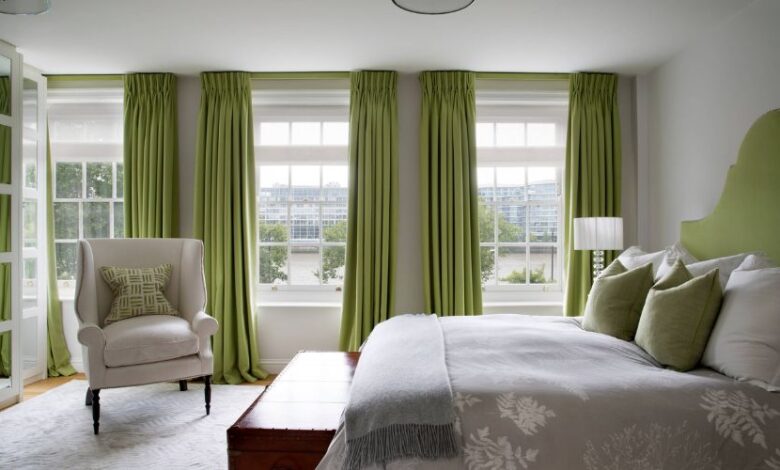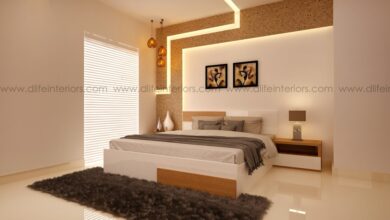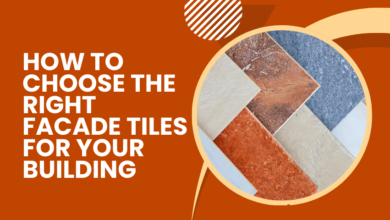What Fabrics Are Best for Custom Curtains?

Choosing the right fabric for custom curtains can transform your living space, providing not only a visual appeal but also functional benefits like light control and insulation. With a plethora of options available, it can be overwhelming to determine which fabric is the best fit for your needs. In this article, we’ll dive deep into the various types of fabrics suitable for custom curtains, considering factors like durability, maintenance, and aesthetic appeal.
There are several factors to consider when choosing curtain fabrics.
Light Control
The amount of light you want to filter into your room significantly impacts your fabric choice. Lighter fabrics like voile or sheer allow more light, creating a bright and airy atmosphere, whereas heavier fabrics like velvet or blackout materials block light effectively, making them ideal for bedrooms or media rooms.
Insulation and Energy Efficiency
Custom Curtains Abu Dhabi can also serve as insulators, keeping your home warmer in the winter and cooler in the summer. Fabrics such as thermal or velvet are excellent for insulation purposes, helping to reduce energy costs.
Privacy
Depending on the room’s purpose, privacy might be a top priority. Thicker fabrics, like brocade or lined curtains, provide more privacy, whereas sheer fabrics might be better suited for communal areas where privacy is less of a concern.
Aesthetic Appeal
The visual appeal of your curtains can enhance your room’s decor. Fabrics come in various textures, patterns, and colors, allowing you to customize your curtains to match your interior design theme perfectly.
Durability and Maintenance
Consider how much wear and tear your curtains will face and how easy they are to maintain. Durable fabrics like polyester are easy to care for, while more delicate fabrics like silk might require professional cleaning.
Popular Fabrics for Custom Curtains
Cotton
Characteristics: Versatile, breathable, and available in a wide range of weights and weaves. Pros: Easy to clean, durable, and can be dyed in many colors. Cons: Prone to wrinkling and might shrink if not pre-washed.
Linen
Characteristics: Lightweight, natural texture, and breathable. Pros: Provides a casual, elegant look and is eco-friendly. Cons: Wrinkles easily and can be expensive.
Silk
Characteristics: Luxurious, smooth, and shiny. Pros: Adds a touch of elegance and is available in many patterns and colors. Cons: Expensive and requires delicate care.
Velvet
Characteristics: Thick, soft, and plush. Pros: Excellent for blocking light and sound, and adding a rich, sophisticated look. Cons: Can be heavy and requires professional cleaning.
Polyester
Characteristics: Durable, resistant to shrinking and wrinkling. Pros: Affordable, low maintenance, and available in many styles. Cons: Can look less natural compared to other fabrics.
Acrylic
Characteristics: Soft, lightweight, and resistant to fading. Pros: Easy to clean and maintain, and durable. Cons: Not as breathable as natural fabrics.
Brocade
Characteristics: Richly decorative, often with raised patterns. Pros: Adds a luxurious feel and is great for formal settings. Cons: Can be heavy and difficult to clean.
Voile
Characteristics: Lightweight, sheer, and delicate. Pros: Allows plenty of light in and adds a soft, romantic touch. Cons: Provides minimal privacy and insulation.
Specialty Fabrics for Unique Curtain Needs
Blackout Fabrics
Ideal for bedrooms or media rooms, blackout fabrics block nearly all light, ensuring complete privacy and darkness.
Sheer Fabrics
Perfect for living areas where you want to maintain light while adding a touch of elegance. Sheer fabrics like voile or chiffon are ideal here.
Thermal Fabrics
Designed to insulate, thermal fabrics help regulate your home’s temperature, making them energy-efficient choices.
Acoustic Fabrics
For spaces needing sound dampening, acoustic fabrics can help reduce noise levels, making them perfect for home theaters or noisy environments.
Comparing Natural vs. Synthetic Fabrics
Benefits of Natural Fabrics
Natural fabrics like cotton, linen, and silk offer breathability, a luxurious feel, and are often eco-friendly. They bring a touch of nature into your home and are usually more sustainable.
Benefits of Synthetic Fabrics
Synthetic fabrics such as polyester and acrylic are durable, resistant to shrinking and wrinkling, and generally more affordable. They offer a wide range of colors and styles, and they are easy to maintain.
Which is Best for Your Needs?
The choice between natural and synthetic fabrics depends on your specific needs and preferences. If you prioritize sustainability and a natural feel, go for natural fabrics. If durability and low maintenance are your priorities, synthetic fabrics might be a better option.
Customization Tips for Curtain Fabrics
Mixing Fabrics
Combining different fabrics can create a unique look and serve multiple functions. For example, pairing a sheer fabric with a heavier one can provide both light control and privacy.
Adding Linings
Linings can enhance the functionality of your curtains, adding extra insulation, light control, and longevity to the fabric.
Using Patterns and Textures
Incorporate patterns and textures to add depth and interest to your curtains. Stripes, florals, and geometric designs can complement your room’s decor and make your curtains a focal point.
How to Care for Different Curtain Fabrics
General Care Tips
- Regularly vacuum your curtains using a soft brush attachment.
- Spot clean stains immediately to prevent them from setting.
- Follow the manufacturer’s instructions for washing and drying.
Fabric-Specific Care Instructions
- Cotton and Polyester: Machine washable on a gentle cycle.
- Linen: Hand wash or dry clean to prevent shrinking.
- Silk and Velvet: Professional cleaning is recommended.
- Acrylic: Machine washable, but avoid high heat.
Conclusion
Choosing the right fabric for your custom curtains is a crucial step in designing your space. By considering factors such as light control, insulation, privacy, and maintenance, you can find the perfect fabric that meets both your functional and aesthetic needs. Whether you opt for the natural elegance of linen or the practical durability of polyester, custom curtains can significantly enhance your home’s ambiance.



